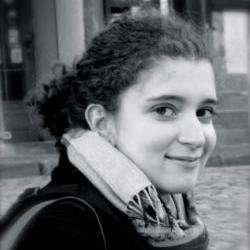There was something exceptional about this musical event: an opera in concert at the Salle Pleyel, with a regional French orchestra, a Spanish choir and fourteen international singers, for a Russian masterpiece, Boris Godunov. And there was something exceptional in the concert hall when the audience's unbridled applause called the singers on stage for the fifth time.
The Orchestre National du Capitole de Toulouse can today claim to be one of the best French orchestras. Young but highly talented conductor Tugan Sokhiev was named Musical Director in 2008 and since then, the collaboration has continually improved its standard, musicality and cohesion.
At the Salle Pleyel, Sokhiev, very recently appointed Music Director of the Bolshoi Theatre, presented one of the greatest Russian operas in a concert version. No costumes, then, for this Boris, but something else on stage: closer to the singers and to the audience, the orchestra also had a role in this symphonic opera. This performance shed light on Mussorgsky's orchestral score, too often hidden by the drama, with Sokhiev delicatley highlighting its many treasures. From the first Prelude and its interesting orchestral figures to the hopeless last measures, the ONCT inscribed its palpable presence into the very heart of the opera. Sometimes lacking intimacy, the strings played with a very large, deep sound, which perfectly suited the Russian atmosphere. Among the other players, the bass trombone deserves particular mention; the striking final tolling bell dealt a fatal blow to Boris Godunov himself and to the breathless audience.
As the people of Moscow, heaven’s angels, or boyars, the Orfeon Donostiarra Choir had a huge role to play all through the opera, as crucial support for the orchestra and soloists, and even for the drama. Beautiful timbres, interesting sound, astonishing piano and bright forte: they were as convincing as angels as they were as boyars, and the choir considerably contributed to the performance's general success.
Carried by several fantastic voices, the cast managed to move their audience into Boris Godunov’s strange story and made them forget that it was a concert version of the opera. Three interesting scenes were especially memorable: that of the Innocent, perfectly sung by crystalline tenor Stanislav Mostovoi; the burlesque scene at the inn, as cleverly led as a more serious aria would have been, especially thanks to Alexander Teliga’s compelling Varlaam; and, naturally, the last scene in which Boris slowly dies, overwhelmed by his guilt. These last twenty minutes were largely enlightened by Ain Anger’s Pimen and John Graham-Hall’s Prince Shuysky, who offered a splendid prologue to Boris Godunov’s astounding death aria. Italian bass Ferruccio Furlanetto was an outstanding tsar, and his heartbreaking, tortured and very coloured interpretation were enough to transcend the whole opera.
After a thrilling timpani decrescendo, the music slowly fainted and the audience exploded with applause. Mussorgsky’s rich, complex music and Boris Godunov’s tragic, mighty story has found a very original vision in Tugan Sokhiev’s concert version. The Salle Pleyel made no mistake about it: this Boris will stay in our memories for a while.


